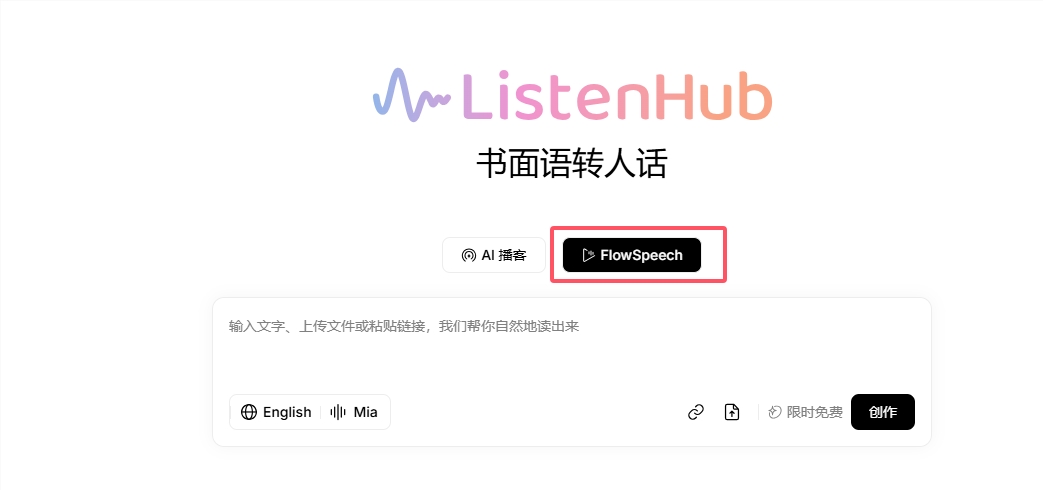Artificial intelligence speech synthesis technology has made a new breakthrough. A text-to-speech tool called FlowSpeech has been officially released. Its unique feature is the ability to convert written text into natural and smooth spoken expressions, providing users with a more realistic conversational speech synthesis experience.
The development of FlowSpeech was inspired by a touching story. An 80-year-old American man lost his ability to speak due to long-term illness, but he continued to share his life experiences with others through the AI tool ListenHub. This real case inspired the development team to create a TTS technology solution specifically for converting written language into spoken language.
A significant difference between FlowSpeech and traditional text-to-speech tools lies in its focus on solving the expression differences between written and spoken language. Traditional TTS products often mechanically read out text without natural intonation changes or emotional expression. FlowSpeech uses context-aware and multimodal support technologies to deeply understand the semantic level of the text, thereby generating more vivid and natural speech output.

Experience it now: https://listenhub.ai/zh?tab=flowspeech
In terms of technical implementation, FlowSpeech features intelligent content filtering, which can automatically identify and trim unsuitable content for reading, such as advertisements, meaningless strings, and other interfering elements, significantly improving the quality of the final speech output and user experience.
In terms of application scenarios, FlowSpeech demonstrates broad practicality. Content creators can use this tool to produce podcast programs, converting written scripts into natural spoken expressions. The audiobook production field can also benefit from it, enhancing the immersive experience for listeners through more natural reading methods. Enterprise users can apply it to internal training material creation, making dull document content easier to understand and accept.
Educators are another important user group for FlowSpeech. By converting teaching materials into natural spoken forms, teachers can better convey knowledge content, and students can have a better learning experience. For users who need to share personal stories or experiences, FlowSpeech provides a convenient channel for expression.
From a technological development perspective, FlowSpeech represents the evolution of speech synthesis technology toward greater intelligence and humanization. Compared to simple text reading, the ability to understand context and generate natural spoken expressions is closer to actual human communication.
The development team stated that they will continue to improve the technical functions and plan to launch personalized voice customization services, allowing users to have their own AI voice assistants. The realization of this function will further expand the application boundaries of FlowSpeech, offering more personalized speech synthesis experiences for different users.
The emergence of FlowSpeech fills a gap in natural language expression in existing TTS tools, opening up new possibilities for the practical application of speech synthesis technology. As the technology continues to improve, such intelligent speech tools are expected to play an important role in more fields.










